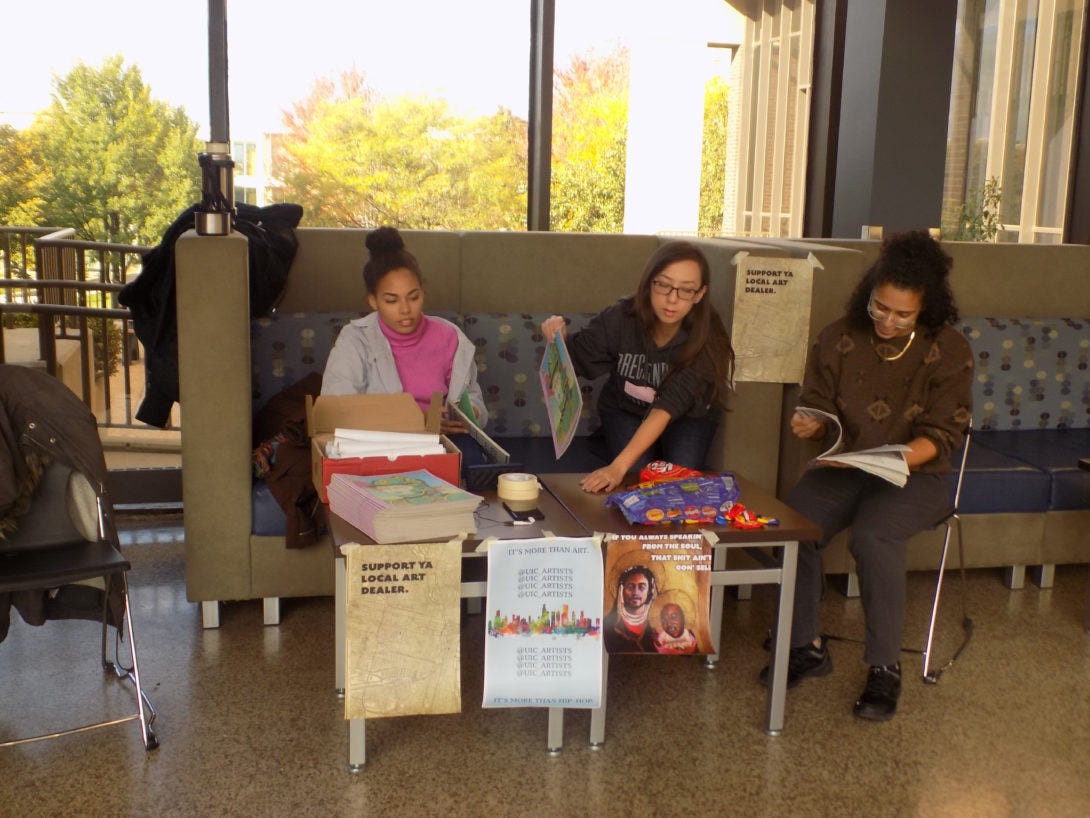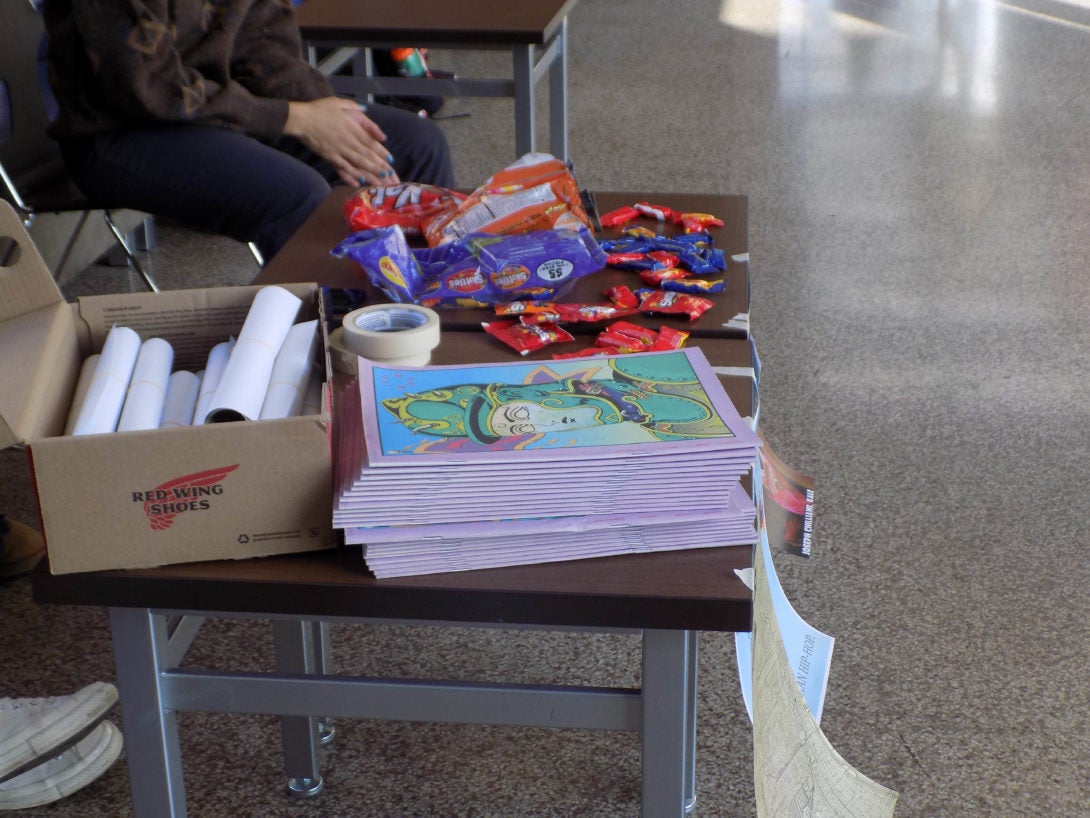An Affirmation of Local Art and Community Values
Arianna Brown, Kayla Butler, Dawn Joy, Elenor Grace Ravenwhite
Within our intervention, we attempted to address the commodification of music, specifically Hip Hop. Growth in demand gets taken advantage of by the industry, and through prioritization of revenue gains, production loses its meaning. Musicians are oppressed though restrictive contracts and the origins of the musical tradition and culture are forgotten. The tradition of Hip Hop is especially important to preserve because it is an integral part of the unfolding of black music and culture. Ultimately, however, we want to encourage students to listen to and support local independent artists, because these are the artists who are most able to uphold the traditions of their music. Record labels do not limit their vision. They facilitate community because local listeners can make more meaningful connections, and they are the most in need of support.
Because the proselytizing experience of protest conflicts with our goal of encouraging support and enjoyment of local art, we made our intervention representative of the community that we're encouraging students to participate in. The "irresistible image" that we attempted to create was people hanging out, enjoying music, eating and having conversation. We were able to create an intimate and relaxed space with snacks and local music playing in the hope that those passing by would join us and discuss the local music scene. Free posters were provided for students, which had lyrics by local artists that spoke to the message of our intervention. Though it wasn't able to reach many people in such a short time, it successfully created the space.
We now have a deeper understanding of how art and protest are the results of very similar needs in a community, and that they operate very similarly. Artists and their supporters proliferate ideas similarly to the way organizers do, reflecting personal experience. We also gained insight on the comparison of Paulo Freire and how he declares that pedagogy is a form of establishing community values, in which the oppressed and their allies are creating their own futures by acting out in opposition and resistance.
This is germane to our intervention centered around Chicago. The form of protest we chose struggles, as a means of distributing that message either because it's a microcosm or it has grown so much that the message becomes distorted. Yet because it is a constructive form of protest, it can make change immediate. Within our group, there were many artists whose works we could share and discuss. In fact many students do have and support friends who make music, but we should be more proactive and disseminate the love these artists spread.
Award-Winning Activism: Chance the Rapper as the Autonomous Example Heading link

Resisting the controlling nature of record labels and imagining a liberated city is no easy task, but Chance the Rapper’s music and social actions have managed to do both. Activism has taken new forms in contemporary Hip Hop: it has been crucial to shaping the future of the music industry and a new wave of public engagement, creating a certainly new form of liberation orchestrated by the oppressed themselves. Chance is one primary example of an activist that has made not only philanthropic waves, but has made history in being the first independent artist to win multiple Grammys without selling any of his music. We invite others to consider why music from rising Chicago artists has created a moving form of resistance.
In the context of the music industry, this work is important firstly because it allows artists total autonomy over their own work. When taken and used by another party, the purpose of their work can become distorted, regardless of the original intention. Preventing this can help the artist engage with their communities of belonging, then allowing them to profit directly and equitably from their work, free of influence that might commodify the message. Chance the Rapper’s choice not to sign has been able to achieve this in impactful and political ways. This establishes a more independent environment for creating and distributing the message. Advocating for autonomy supports an increase in artistic and therefore political freedom, which resists the dominant culture of formal label control.
jk Heading link

Chance has had an impact as a voice, a catalyst, and as a hand up to other independent artists. With control over his message, he has sparked creative social activism. He donates millions of dollars towards Chicago Public Schools and has created his own foundation Social Works, dedicated towards youth empowerment. A group member of ours recalls his political action and effort “Parade to the Polls” where he held a concert in Grant Park and proceeded to lead young people to the polls to vote in the presidential election. This work is proof that the standard way to navigate the industry or city politics is not the only way, and arguably, not the best way either.
Following his already generous philanthropy, we imagine that Chance the Rapper will not only continue his activism and socially conscious music, but also serve as more of a mentor to other artists. There is potential that he may parlay his influence in the music industry to pursue political office. We hope this unique activism will continue to amplify the voices of those from disinvested communities, speaking and rapping as though that were not so. Going forward, we can continue to research other Chicago artists with rhetoric that seeks liberation within their communities, and support the youth programs from which they came- Young Chicago Authors being one example. Indeed it is critical to hear the messages from these artists, show up for the youth in pursuit of their education, and allow individuals to gain autonomy over their environments, a creative liberatory practice rooted in uplifting those in our urban environment.